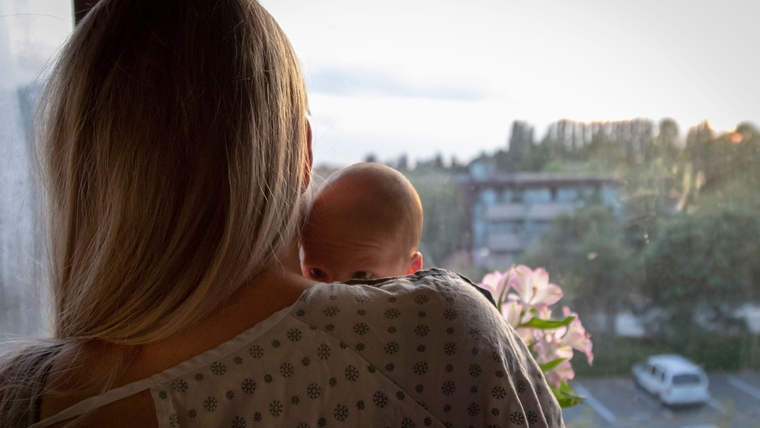Posted By: Amy Tubb
9th July 2021
2 minute read

A survey by Maternal Mental Health Alliance member, the Birth Trauma Association, has found that the majority of people aren’t aware that birth can cause post-traumatic stress disorder (PTSD).
The survey, carried out to mark Birth Trauma Awareness Week, found that, while 78% of people were aware that war could cause PTSD, only 40% knew that it was possible to experience PTSD as a result of giving birth.
Presented with a list of traumatic experiences that might cause PTSD, birth was identified by the fewest number of people, below a terrorist attack (77%), physical or sexual assault (72%), a serious accident (71%), emotional abuse (65%) or the death of someone close (58%).
There was a striking difference between men and women, with 48% of women, but only 30% of men, being aware that birth could lead to PTSD. When it came to age, awareness was highest in the 25-34 age group (48%) and lowest in the 55+ age group (35%).
Asked whether they’d heard of a range of perinatal mental health conditions, 38% said they had heard of birth trauma (a shorthand name for PTSD resulting from childbirth), far fewer than the numbers who had heard of postnatal depression (80%), anorexia (79%), obsessive compulsive disorder (79%) or anxiety disorder (76%).
One in 25 women develop PTSD after childbirth – about 30,000 women a year in the UK, with many more developing some trauma symptoms. It can be caused by a range of traumatic experiences, particularly those involving emergencies where the woman fears for her own or her baby’s life.
Women who develop PTSD after traumatic birth typically find themselves reliving the birth through flashbacks and nightmares, and often find that their extreme anxiety and sense of being on high alert makes daily life unbearable.
Neya’s son was born during lockdown in May 2020. Her labour was induced and because of visiting restrictions, she spent the first 17 hours alone. Neya’s husband was allowed to join her briefly, but she needed an emergency caesarean section and he was made to leave within an hour. On the postnatal ward, she says she was further traumatised by the lack of care. She developed postnatal PTSD as a result.
Staff mocked and ignored me, leaving me to beg for even a glass of water. I was unable to move initially as I was numb from the waist down so had to leave my baby to cry because nobody would come to help. Within hours of having major surgery, I was up and walking, struggling to look after myself let alone a newborn.”
Neya, new mum with lived experience of birth trauma
Kim Thomas, CEO of the Birth Trauma Association, said: “In recent years, we’ve seen awareness of birth trauma grow considerably, but the survey shows there is still a long way to go. Many women who come to us with PTSD symptoms after traumatic birth have been misdiagnosed with postnatal depression, or have been told to forget about the birth and move on. In fact, PTSD is a serious mental health condition that can have a devastating effect on people’s lives, regardless of the cause. Provided it is diagnosed correctly, it can be treated effectively with therapy.”
Birth Trauma Awareness week takes part from 19th – 24th July. This year’s theme is ‘Connections‘, reflecting the importance of connecting with other people after a traumatic experience. The week also marks the launch of the Birth Trauma Association’s new phone support service for women or their partners who are struggling with symptoms of birth trauma.
If the content of Neya’s story caused you to think of anything that has happened to you or someone you know and you feel upset, worried or uncomfortable, please see our support page for a list of services that may be able to help.